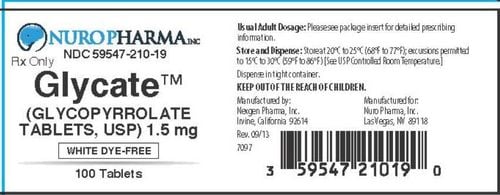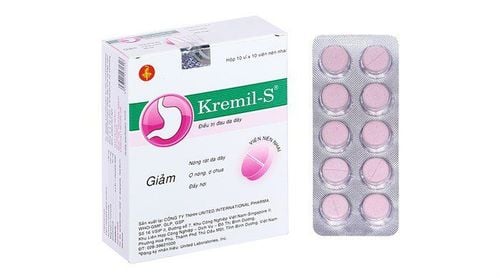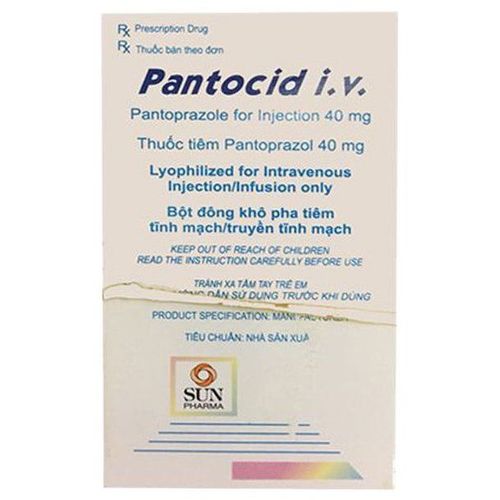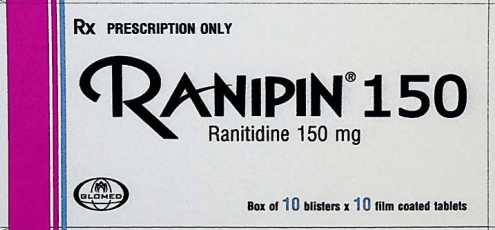This is an automatically translated article.
Ranitidine medicine contains the main active ingredient, Ranitidine and other excipients in a sufficient amount. This is a drug that works to reduce acid secretion in the stomach by competing with Histamine, preventing Histamine from attaching to the receptor to respond to acid production.
1. What is Ranitidine? Dosage forms of the drug Ranitidine
What is Ranitidine? Ranitidine contains the active ingredient Ranitidine. The drug is effective in the treatment of duodenal ulcer disease, benign gastric ulcer, postoperative ulcer, esophageal reflux disease, Zollinger - Ellison syndrome. The drug is used in necessary cases to reduce gastric secretion and acid secretion such as:
Prevention of gastrointestinal bleeding caused by stress ulcers in seriously ill patients; Prophylaxis of recurrent bleeding in patients with bleeding peptic ulcers; Prophylaxis before general anesthesia in people at risk of acid aspiration (Mendelson's syndrome), especially in pregnant women in labor; Used in the symptomatic treatment of indigestion. 1.1. Pharmacodynamics Ranitidine is an H2-Histamine receptor antagonist. The drug has the ability to reduce about 90% of gastric acid secretion after taking a therapeutic dose, has the effect of quickly healing peptic ulcers and preventing recurrence. Moreover, Ranitidine has an important role in controlling Zollinger-Ellison syndrome and excessive gastric secretion.
1.2. Mechanism of action Ranitidine competitively inhibits histamine at the H2-receptors of parietal cells. The drug is effective in reducing the amount of gastric acid secreted both day and night, both in the state of irritation caused by food, insulin, amino acids, histamine or pentagastrin. Ranitidine drug inhibits gastric acid secretion 3 to 13 times stronger than Cimetidine, but has less unwanted effects.
1.3. Pharmacokinetics: The bioavailability of Ranitidine is about 50%. The drug is administered orally after 2-3 hours, maximum plasma concentrations will be reached. Absorption of Ranitidine is largely unaffected by food and antacids. Ranitdine is not extensively metabolized and does not have as many drug interactions as cimetidine. Ranitidine is eliminated mainly by the renal tubules, with a half-life of 2-3 hours, 60-70% of the oral dose and 93% of the intravenous dose is eliminated mainly in the urine, the remainder is excreted in the feces. Urinalysis within the first 24 hours after oral administration showed that 35% of the oral dose and 70% of the intravenous dose were excreted unchanged.
Ranitidine drug administered by intramuscular route, maximum plasma concentration is achieved faster, within 15 minutes after injection.
1.4. Ranitidine drug dosage form Ranitidine drug has the following drug forms and strengths:
Tablets, oral drugs: 25 mg; 75 mg; 150 mg; 300 mg. Capsule form, oral drug: 150 mg; 300 mg. Solution for injection, injection: 50mg/2ml, 150mg/6ml, 1000mg/40ml.
2. Uses of the drug Ranitidine
Treatment of benign gastric and duodenal ulcers, including cases caused by non-steroid anti-inflammatory drugs, postoperative ulcers, reflux esophagitis, Zollinger Ellison syndrome. Treatment of duodenal ulcers caused by Helicobacter pylori bacteria. Treatment of chronic dyspepsia, characterized by pain (a burning pain in the epigastrium and sternum) that is related to meals or sleep but is not caused by any of the above. Ranitidine is also used to treat damage to the gastric mucosa (erosion, bleeding, edema in diseases: acute gastritis, acute advanced stage of chronic gastritis). Prophylaxis before general anesthesia in persons at risk of acid aspiration in Mendelson's syndrome, particularly in pregnant women in labor.
3. Usage and dosage of Ranitidine 150 mg
3.1. How to take Ranitidine Take Ranitidine by mouth. Remember to chew the tablet whole with a little water. 3.2. Dosage of Ranitidine Therapeutic dose for adults (including the elderly)
1 Ranitidine 150 mg tablet in the morning and 150 mg in the evening 1 Ranitidine 300 mg tablet at bedtime. Treatment dose for children ≥ 12 years old
Children weighing over 30kg and in the age group 3-11: the therapeutic dose is calculated based on the above indicators (weight). Treatment dose for gastric or duodenal (or small intestine) ulcers
The usual therapeutic dose is 2 mg/kg x 2 times/day x 4 weeks. The therapeutic dose may be increased to 4 mg/kg twice daily. Each treatment dose is spaced 12 hours apart and treatment can be up to 8 weeks. Dosage for heartburn caused by too much acid
The usual dose is 2.5 mg/kg body weight x 2 times/day x 2 weeks. The therapeutic dose may be increased to 5 mg/kg twice a day. 3.3. Ranitidine overdose / missed dose There are no special problems with an overdose of Ranitidine . The reason is that there is no specific antidote, so supportive and symptomatic treatment is needed as follows:
Treatment of convulsions: Using intravenous diazepam; Treatment of bradycardia: Inject Atropin; Treatment of ventricular arrhythmias: Lidocaine injection; Monitor and control unwanted effects. If necessary, the doctor will prescribe hemodialysis to remove the drug from the plasma.
In case of forgetting a dose: if a dose is missed, the patient should take it as soon as he remembers it. Never use a double dose to make up for a missed dose. If it is almost time for the next dose, skip the missed dose and take it at your usual schedule.
4. Undesirable effects of the drug Ranitidine
During the use of the drug, the patient may encounter some side effects as follows:
Pancreatitis; Digestive disorders, diarrhea; Increased liver enzymes; Erythema multiforme; Eye accommodation disorder; Itching, pain at the injection site; Hepatitis, sometimes appearing jaundice; Headache, dizziness, weakness; Leukopenia, thrombocytopenia; Presence of enlarged breasts in men; Agranulocytosis, total leukopenia, including bone marrow hypoplasia; Hypersensitivity reactions may include urticaria, bronchospasm, fever, anaphylaxis, angioedema, myalgia, arthralgia.
5. Ranitidine drug interactions
Ranitidine drugs very little inhibit the metabolism in the liver of some drugs (such as anticoagulants Coumarin, Theophylline, Diazepam, Propranolol). The affinity of Ranitidine for cytochrome P450 enzymes is about 10% compared with Cimetidine and the degree of liver enzyme inhibition is 2-4 times less than Cimetidine. The effect of lowering blood sugar when using Ranitidine in combination with Glipizide with Ranitidine or Cimetidine is common but not much. When quinolones are co-administered with H2 antagonists, most of these antibiotics are unaffected. Enoxaxin alone is reduced in bioavailability when co-administered with Ranitidine, but this change is not clinically important. clinical. When used in combination with drugs Ketoconazole, Fluconazole and Itraconazole with Ranitidine, these drugs are reduced absorption. This is because the drug Ranitidine reduces the acidity of the stomach. When theophylline is used in combination with cimetidine, the serum theophylline concentration and toxicity increase, but with ranitidine, this effect is very little. The use of Ranitidine in combination with Clarithromycin will increase the concentration of Ranitidine in the blood plasma (57%). Propanthelin bromide increases peak serum concentrations of Ranitidine and slows absorption, possibly by slowing gastric transit, increasing the relative bioavailability of Ranitidine by approximately 23%. Co-administration of Ranitidine with food or with a low dose of antacids (neutralizing ability of 10 - 15 milliequivalents of HCl in 10 ml) did not show a decrease in absorption or peak plasma concentration of Ranitidine. .
6. Some notes when using Ranitidine drug
Caution when using Ranitidine for the following subjects: Patients with renal failure need to reduce the dose; patients with severe liver failure, patients with acute porphyria. Because of the increased risk of possible undesirable effects and the risk of overdose; Patients with heart disease may be at increased risk of bradycardia. Ranitidine tablets are effervescent in water containing sodium, easily overloading sodium, so it should be used with caution in people with hypertension, heart failure, kidney failure. Treatment with H2-antihistamines can mask the signs of stomach cancer and delay its diagnosis. Therefore, when there are symptoms of gastric ulcer, it is necessary to exclude the possibility of cancer before treatment with Ranitidine. Ranitidine drug is excreted by the kidneys, so when the user has kidney failure, the concentration of the drug in the blood plasma will increase, so doctors usually prescribe low doses of 25mg, or just take 1 dose of 500mg in the evening. , in 4 - 8 weeks. Although rare, there are cases when rapid injection of Ranitidine can cause bradycardia and usually occurs in patients with predisposing factors for arrhythmia. Ranitidine should be avoided in patients with a history of porphyria. For pregnant women, Ranitidine crosses the placenta, but in fact, in therapeutic doses, there are no harmful effects on the pregnant mother, the delivery process and the health of the fetus. For nursing mothers, Ranitidine is excreted in milk. Similar to other drugs, Ranitidine should only be used when needed during lactation after the potential benefit and risk have been weighed by the treating physician.
7. How to store Ranitidine
Avoid leaving Ranitidine in a humid place such as a bathroom; Keep medicine out of reach of children and household pets; Store Ranitidine in a dry place at a temperature of 15-30°C. Avoid direct light. Do not use expired Ranitidine drugs and know how to handle these drugs before releasing them into the environment. Ranitidine medicine contains the main active ingredient, Ranitidine and other excipients in a sufficient amount. This is a drug that works to reduce acid secretion in the stomach thanks to its competitive mechanism of action with histamine, preventing histamine from attaching to the receptor to respond to acid production. To ensure the effectiveness of treatment and avoid unwanted side effects, patients need to strictly follow the instructions of the doctor, professional pharmacist.
Follow Vinmec International General Hospital website to get more health, nutrition and beauty information to protect the health of yourself and your loved ones in your family.
Please dial HOTLINE for more information or register for an appointment HERE. Download MyVinmec app to make appointments faster and to manage your bookings easily.













